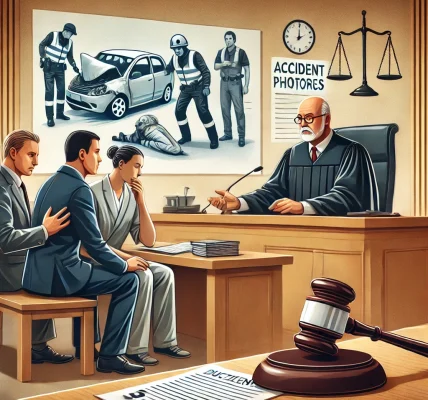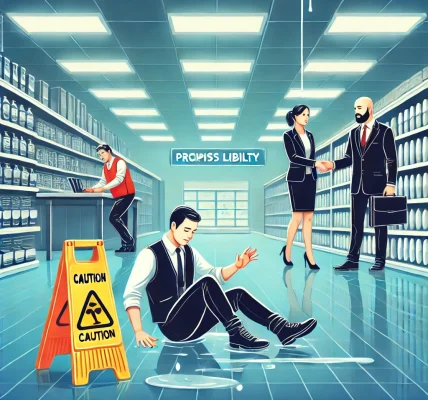When pursuing compensation for a personal injury, you typically have two options: settling out of court or going to trial. Both choices have their advantages and disadvantages, and the right decision depends on factors like the strength of your case, the time you are willing to invest, and your risk tolerance.
In this article, we will explore the pros and cons of personal injury settlements and trials to help you make an informed decision.
Understanding Personal Injury Settlements
A settlement occurs when the injured party (plaintiff) and the responsible party’s insurance company agree to resolve the case outside of court. This is typically done through negotiations and results in a financial payout to the plaintiff.
Pros of Settlements
1. Faster Resolution
- Settlements are often resolved in weeks or months, whereas trials can take years to conclude.
- This allows injured victims to receive compensation sooner and cover medical expenses and lost wages.
2. Lower Legal Costs
- Court trials involve extensive legal fees, including attorney fees, expert witness fees, and court costs.
- Settlements help minimize legal expenses and ensure that a greater portion of the compensation goes to the injured party.
3. Predictability
- A settlement ensures a guaranteed payout, whereas a trial carries the risk of losing the case and receiving nothing.
- Plaintiffs can negotiate an amount they are comfortable accepting instead of leaving the outcome to a judge or jury.
4. Less Stressful
- Trials involve courtroom procedures, cross-examinations, and potential delays, which can be stressful and emotionally draining.
- Settlements provide a less confrontational process, allowing victims to move forward with their lives sooner.
5. Privacy Protection
- Settlement agreements often include confidentiality clauses, preventing case details from becoming public.
- This protects both parties from unwanted publicity and reputational harm.
Cons of Settlements
1. Lower Compensation Amounts
- Insurance companies may offer less than what a plaintiff could potentially receive from a favorable trial verdict.
- Defendants typically negotiate to pay the least amount possible to resolve the claim.
2. No Admission of Liability
- In most settlements, the defendant does not admit fault.
- This can feel unsatisfying for plaintiffs who seek acknowledgment of wrongdoing.
3. Potential for Unfair Deals
- Some victims accept lowball offers without realizing they could receive more through litigation.
- Once a settlement is signed, plaintiffs cannot pursue further legal action for additional compensation.
Understanding Personal Injury Trials
If a settlement cannot be reached, the case goes to trial, where a judge or jury determines whether the plaintiff deserves compensation and how much they should receive.
Pros of Trials
1. Higher Compensation Potential
- If a plaintiff wins at trial, they may be awarded a larger settlement than what was initially offered in negotiations.
- Juries sometimes grant punitive damages, which can significantly increase the compensation amount.
2. Public Acknowledgment of Liability
- Unlike settlements, trials hold the defendant accountable for their actions.
- This can provide a sense of justice and closure for plaintiffs who want formal recognition of wrongdoing.
3. Legal Precedent and Deterrence
- Winning a trial can set a legal precedent, helping others in similar situations in the future.
- A successful lawsuit may deter negligent behavior from corporations, medical professionals, or reckless drivers.
Cons of Trials
1. Lengthy Process
- Trials can take months or even years to conclude due to legal procedures, court scheduling, and appeals.
- This delay can cause financial strain on plaintiffs who need immediate compensation.
2. Higher Costs
- Litigation is expensive due to attorney fees, expert witnesses, court filing fees, and other legal costs.
- Even if a plaintiff wins, legal fees can reduce the final compensation amount.
3. Uncertainty and Risk
- There is no guarantee of winning at trial.
- A judge or jury may rule in favor of the defendant, resulting in no compensation for the plaintiff.
- If an appeal is filed, the process can be further delayed.
4. Emotional and Mental Stress
- Trials can be mentally and emotionally exhausting, requiring plaintiffs to relive traumatic events.
- Cross-examinations can be intimidating and may affect the plaintiff’s credibility.
How to Decide: Settlement vs. Trial
When deciding whether to settle or proceed to trial, consider the following factors:
1. Strength of Your Case
- If you have strong evidence (e.g., medical records, witness testimonies, expert opinions), your chances of winning at trial may be higher.
- Weak or disputed evidence may make settlement the safer option.
2. Financial Needs
- If you need immediate compensation to cover medical expenses or lost wages, a settlement can provide a faster financial resolution.
- If you can afford to wait and believe you deserve a higher payout, a trial may be worth the risk.
3. Risk Tolerance
- Are you comfortable with the possibility of losing everything at trial?
- If so, pursuing a trial might be a good option. If not, a settlement is the safer route.
4. Emotional Readiness
- Are you prepared for the stress of testifying and undergoing cross-examination?
- If litigation feels overwhelming, settling might be the best decision.
5. Legal Advice
- Consult an experienced personal injury attorney who can assess your case, negotiate on your behalf, and advise on the best course of action.
Conclusion
Choosing between settling a personal injury claim and going to trial is a significant decision that depends on multiple factors, including financial needs, risk tolerance, and the strength of your case. Settlements offer speed, privacy, and certainty, while trials provide the chance for higher compensation and public accountability.
To make the best decision, seek professional legal guidance to evaluate your options and maximize your chances of receiving fair compensation. Whether you settle or go to trial, the ultimate goal is to secure justice and the compensation you rightfully deserve.




